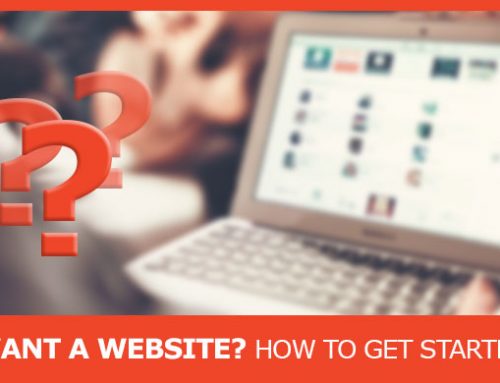Click here for Part 1 – How To Get Started
What is Hosting? Can I do it?
Hosting is just the action of a computer providing your site to the world, handling traffic like a streetlight for you. A web host is just a computer. Hosting should not be done by yourself; you don’t want your home computer hosting a website. Doing it yourself means power outages, slow connections which will drive visitors away, a dynamic IP address, and the maintenance of the hardware falls to you.
That is only partially why you shouldn’t do it, but there are many other headaches that go along with it. By having a professional web hosting company you don’t need to worry about outages, there is super fast and stable connections, a static IP address, and the hardware maintenance is done by experts. Most of these reasons are self-explanatory, but the IP address part, so to explain: if your IP address is dynamic, as home IP addresses are – if someone is trying to find you, imagine your home address on your building changing constantly. How could anyone ever find you if your home building number changed every time? They can’t, it’s that simple. Having a static IP address means that your address IS your address no matter what, and your home building number stays exactly the same, easy to find and constant.
Types of Hosting
- Shared Hosting
- Dedicated Hosting
- VPS Hosting
No matter what size your site is, you should be covered by one of these types.
Shared Hosting
The most common option for nearly all small businesses, individuals and even some of the bigger websites. This sort of hosting is when many websites host together on a single server. This cuts costs down by quite a lot due to the sharing of resources. Shared hosts can handle up to 30,000 visitors a month which easily covers most anyone’s website needs.
Dedicated Hosting
This type of hosting is a single server per single website. Having a dedicated server means that the whole computer is wholly committed to just your website’s performance. It is the most expensive however, understandably since you’re allotting one entire computer for your own single usage. It is well worth the cost however if your site will demand fast page-load times, a dedicated IP and also needs to handle 100,000 visitors every month.
VPS Hosting (Cloud)
VPS stands for Virtual Private Server, and is hosted on “the cloud” which is another way of saying a large network of many computers, with nearly unlimited space, speed, and resources that you can purchase for a price that works for your needs. There are massive options with using a cloud to host, as with needing to move from a small site to a large site with new hosting needs, but some of the payment options can be a bit restricting since it may not be per month but per hour.
Choices, Choices
Making a choice on what kind of host you need is not limited to just what type, but also what services and ability the host has. Some of the free ones (most of them) will impose advertising because they need a way to offset the costs of providing that site for free. People who are put off by advertisements offered by the host, should consider paying a nominal fee instead to remove the ads.
You should also find out how much web space you will get for your site, and how much space you think you’ll need for your own. Your website creator can help you with this part by explaining how much space they will use/need and how much you get from their own hosting in case you want to grow one day.
You also want to check for things like FTP access, which is the method people use to transfer web pages and files from their own computer to the web host’s computer to make it view-able by anyone all around the world.
You also want to make sure that there are no strange file type and size limitations which would make it difficult to run your site. Some of the free ones impose a maximum size limit on the uploaded files, and others can limit to HTML only or GIF/JPG files. Be sure you know what you’re getting into before you sign on.
If you’re making a storefront, be sure that you check if the webhost allows a SSL (secure server) which is denoted by an https:// instead of http:// and you’ll notice this on many sites like bank sites which require maximum security.
Domain Auctions
Beware on this one. It can be tempting to purchase a site that someone is no longer using, especially if the site has the perfect name for your own business. You can do this certainly, but you want to make sure that you clear the history of the website before you buy it, to make sure that it wasn’t used for anything questionable or that you don’t want affiliated with you in future. Then there’s the issue of aged domains with Google. Any website you can buy from an auction is considered an “aged domain” by the internet giant Google, and they frown on these sites being reawakened like the walking dead, and you may find your traffic from natural links being hurt by this.
The best way forward is always just getting your own site, and building it from the ground up, and cultivating it much as you would a garden. The more time and effort you put into your site, the more care you give the more you’ll see returned by visitors to that site.
In Summary
You can definitely create your own website using things like WordPress, and you can even have them host it for you – in fact, many do exactly that and have no problem at all. However, for those looking to appear more professional, having your own .com site is preferable every time, as is hiring a web designer to create your perfect website. The cost of setting up your website and hosting is small in comparison to knowing you got exactly what you want, and the impact a great site makes over a terrible one. Be sure you choose the host that makes the most sense for the traffic you expect, and be reasonable with all expectations. Pick a name for your domain that is catchy and easily remembered, and avoid things like symbols, numbers and dashes. Now that you’ve got the basics, it’s time to enjoy think tanking those amazing ideas for your site!




